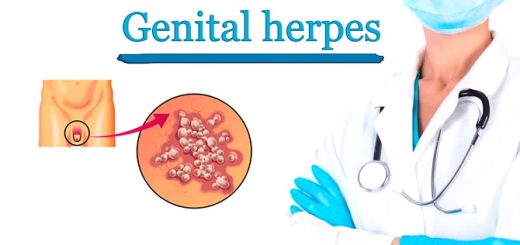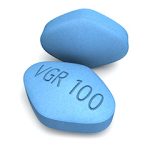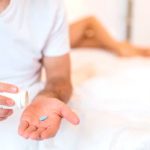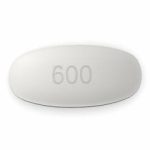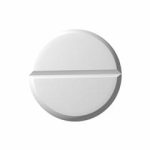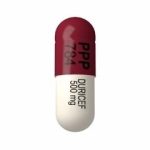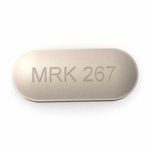Viagra and Erectile dysfunction
Erectile dysfunction is a health problem that affects millions of men worldwide. It is characterized by the inability to achieve or maintain an erection sufficient for satisfactory sexual intercourse. There are many possible causes, ranging from psychological factors to underlying medical conditions. Among the available treatments, Viagra or sildenafil play a central role.
Erectile dysfunction can be caused by several factors, including stress, anxiety, hormonal imbalances, cardiovascular disease, diabetes, or even tobacco and alcohol use. It can affect not only your sex life, but also your overall quality of life, leading to low self-esteem and relationship difficulties.
How does Viagra work?
Viagra is a medication that works by increasing blood flow to the penis, making it easier to achieve an erection in response to sexual stimulation. It works by inhibiting the enzyme phosphodiesterase type 5 (PDE5), which helps maintain higher levels of cGMP, a molecule that relaxes the smooth muscles of the penis and promotes blood flow.
The physiological mechanism of erection is associated with the release of nitric oxide (NO) in the corpora cavernosa during sexual stimulation. This in turn leads to an increase in cGMP levels, subsequent relaxation of the smooth muscle tissue of the corpora cavernosa and increased blood flow.
Sildenafil does not have a direct relaxing effect on isolated human corpora cavernosa, but enhances the effect of nitric oxide by inhibiting PDE5, which is responsible for the degradation of cGMP.
Sildenafil is selective for PDE5 in vitro, its activity against PDE5 exceeds the activity against other known PDE isoenzymes: PDE6 – 10 times; PDE-1 – more than 80 times; PDE-2, PDE-4, PDE-7 — PDE-11 — more than 700 times. Sildenafil is 4000 times more selective for PDE-5 than for PDE-3, which is important because PDE-3 is one of the key enzymes in the regulation of myocardial contractility.
A necessary condition for the effectiveness of sildenafil is sexual stimulation.
Sildenafil restores impaired erectile function during sexual stimulation by increasing blood flow to the cavernous bodies of the penis. But a necessary condition for the effectiveness of sildenafil is sexual stimulation.
Effectiveness and safety
Viagra is known to be effective in a large majority of men suffering from erectile dysfunction. However, its effectiveness depends on the presence of sexual stimulation, and it does not work in the absence of it. It is usually taken about 30 minutes to an hour before sexual activity, and its effects can last up to 4 to 5 hours.
Although Viagra is generally well tolerated, it is not without side effects. The most common include headache, flushing, digestive problems, and temporary changes in vision. Men with heart problems should consult a doctor before using this medication, as it can interact with other treatments, including nitrates.
Contraindications
- Hypersensitivity to sildenafil or any other component of the drug;
- Use in patients who are continuously or intermittently receiving nitric oxide donors, organic nitrates, or nitrites in any form, as sildenafil enhances the hypotensive effect of nitrates;
- Concurrent use of PDE-5 inhibitors, including sildenafil, with guanylate cyclase stimulators such as riociguat, as this may lead to symptomatic hypotension;
- Concurrent use with other treatments for erectile dysfunction;
- Lactose intolerance, lactase deficiency, or glucose-galactose malabsorption;
- Severe hepatic insufficiency (Child-Pugh class C);
- Concurrent use of ritonavir;
- Severe cardiovascular diseases (severe heart failure, unstable angina, stroke, or myocardial infarction within the last 6 months, life-threatening arrhythmias, hypertension or arterial hypotension;
- Patients with episodes of non-arteritic anterior ischemic optic neuropathy with vision loss in one eye;
- Hereditary retinitis pigmentosa;
- Not indicated for use in women according to the registered indication;
- Not indicated for use in children under 18 years of age according to the registered indication.
Use with Caution:
- Anatomical deformation of the penis (angulation, cavernosal fibrosis, or Peyronie’s disease);
- Conditions predisposing to priapism (sickle cell anemia, multiple myeloma, leukemia, thrombocythemia);
- Conditions associated with bleeding;
- Active peptic ulcer disease of the stomach and duodenum;
- Liver function disorders;
- Severe renal insufficiency (creatinine clearance <30 ml/min);
- Patients with a history of non-arteritic anterior ischemic optic neuropathy;
- Concurrent use of α-adrenoreceptor blockers.
Is Viagra the solution?
While Viagra has revolutionized the treatment of erectile dysfunction, it does not cure the underlying causes of the problem. For some men, taking the medication is enough to improve their quality of sex life. For others, additional treatment, including psychological therapy or lifestyle changes, may be necessary.
Improving the quality of your sex life can be done through a holistic approach that includes not only medical treatments like medications but also psychological therapy and lifestyle changes. Here are some strategies that can help:
- Psychological therapy
Consulting a sexologist or psychologist: Psychological therapy can help address issues like anxiety, depression, low self-esteem, and stress, which often affect sexual desire and function. Cognitive behavioral therapy (CBT) and psychoanalysis can be effective methods in this case.
Couples therapy: If the problems are relationship-related, couples therapy can help improve communication, strengthen emotional connection, and improve sex life. - Lifestyle changes
Healthy eating: A diet rich in vegetables, fruits, whole grains, and lean protein can improve overall health, including sexual function. Certain foods, such as nuts, seafood, and leafy greens, can stimulate blood circulation and increase libido.
Physical Activity: Regular exercise improves circulation, stamina, and energy levels, which can improve sexual function. Exercise also releases mood-boosting endorphins.
Reduce Stress: Relaxation practices such as meditation, yoga, and deep breathing can help reduce stress, which is often the cause of sexual problems.
Quit Bad Habits: Smoking, excessive alcohol, and drug use can negatively affect sexual health. Quitting these habits can greatly improve your sex life. - Medical Support
Get Regular Medical Checkups: See your doctor to check your hormone levels, cardiovascular health, and other factors that can affect sexual function.
Take Prescribed Medications: If you have erectile dysfunction, your doctor may prescribe medications such as Viagra to help with these issues. - Education and Communication
Education: Learning about sexuality and sexual function can help you better understand your body and your partner’s needs.
Openness in Relationships: It is important to discuss your desires, needs, and concerns with your partner. Open and honest communication can strengthen your relationship and improve your sex life. - Improve Emotional Connection
Make Time for Intimacy: Make time for emotional and physical intimacy with your partner, whether it’s a romantic dinner, a massage, or just time together. This helps maintain the emotional connection that is important for sexual health.
Using these approaches together can greatly improve the quality of your sex life and overall well-being. If you have serious concerns in this area, it’s best to seek professional advice.






